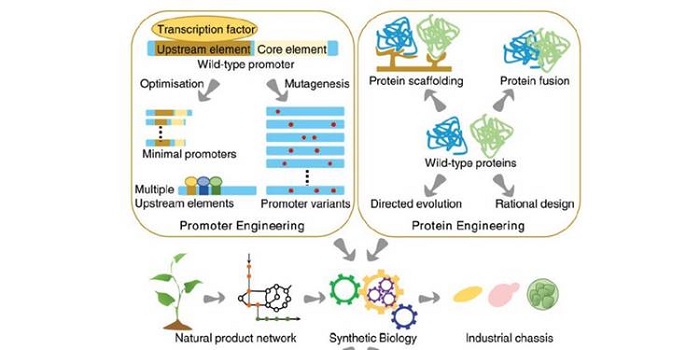
Review: Synthetic biology approaches for the production of plant metabolites in unicellular organisms ($)
Plant Science Research Weekly, Research0 Comments
/
The excellent review by Moses et al. starts by defining the oft-confused terms metabolite engineering and systems biology. Although systems biology can contribute to the former, it is distinguished by the use of “defined ‘parts’ that are easily combined and exchanged, using standardized workflows…

Review: Synthetic botany
Plant Science Research Weekly, ResearchAs photosynthetic autotrophs, plants have the potential to convert sunlight into a vast array of useful products: to act as little green metabolic factories. Of course, they already provide us with everything from carbohydrates and vitamins to stimulants and medicinal compounds, but with a few small…

Rewiring carotenoid biosynthesis in plants using a viral vector
Plant Science Research Weekly, ResearchA healthy human diet should include phytonutrients such as carotenoids. Several approaches including classical breeding and transgenic plant production have been used to increase carotenoid abundance in plant tissues; challenges to these approaches include feedback controls, cell toxicity due to abnormally…
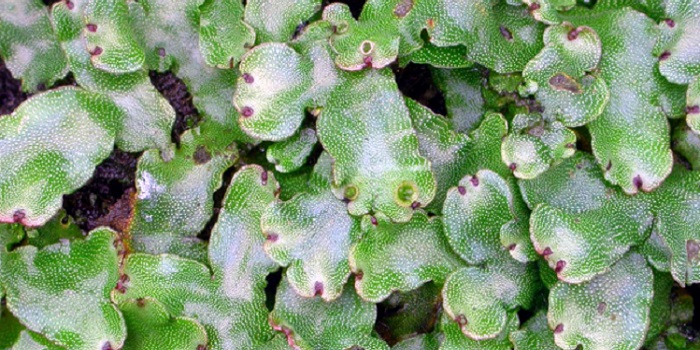
MarpoDB: An open registry for Marchantia polymorpha genetic parts
Plant Science Research Weekly, ResearchMarchantia polymorpha (a liverwort) is a living relative of the earliest terrestrial plants. As it has a simple genome and morphology and is readily transformable, it provides a good platform for synthetic biology (see https://www.openplant.org/marchantia/). Delmans et al. have designed an “engineering-oriented”…

Jay Keasling. Engineering Microbes to Solve Global Challenges
CSVL Research, Curated Webinars / Video Lectures, WebinarsFilmed for iBiology 2016
Talk Overview
Dr. Jay Keasling discusses the promise of biological systems to create carbon-neutral products for a range of applications, including fuels, chemicals and drugs. Keasling discusses the application of these principles to the development of a microbial platform…
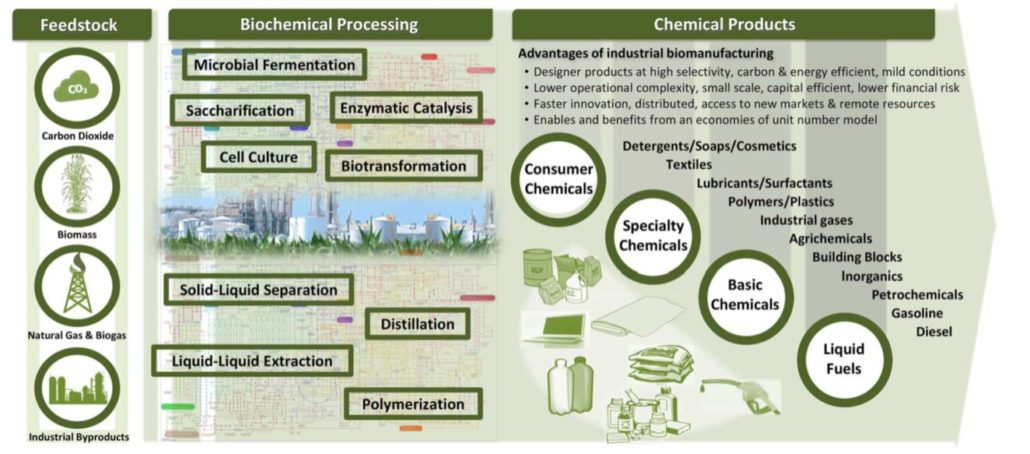
Review: Industrial biomanufacturing: the future of chemical production ($)
Plant Science Research Weekly, ResearchOur way of life depends on the chemical manufacture of thousands of products. Some of these can be produced through biomanufacturing, which may involve starting with a biological starting material, or using an enzyme or organism as catalyst. Advances in synthetic biology, metabolic engineering and genomics…
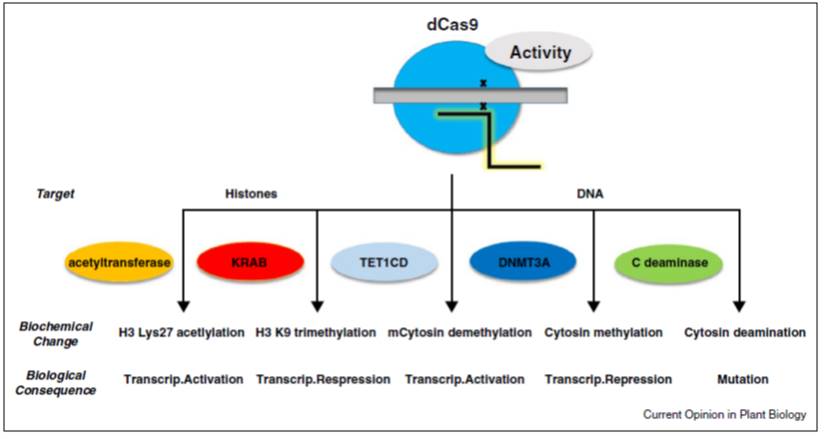
Two Reviews: CRISPR/Cas for genome engineering in plants, and genome editing in cereal crops ($)
Plant Science Research Weekly, ResearchThe gene-editing technology CRISPR/Cas, which introduces double-strand breaks that are repaired by non-homologous end joining (NHEJ), is best known for the promise it holds in modifying an organism’s DNA without the introduction of exogenous genes. However, as Puchta describes (Curr. Opin. Plant Biol.…
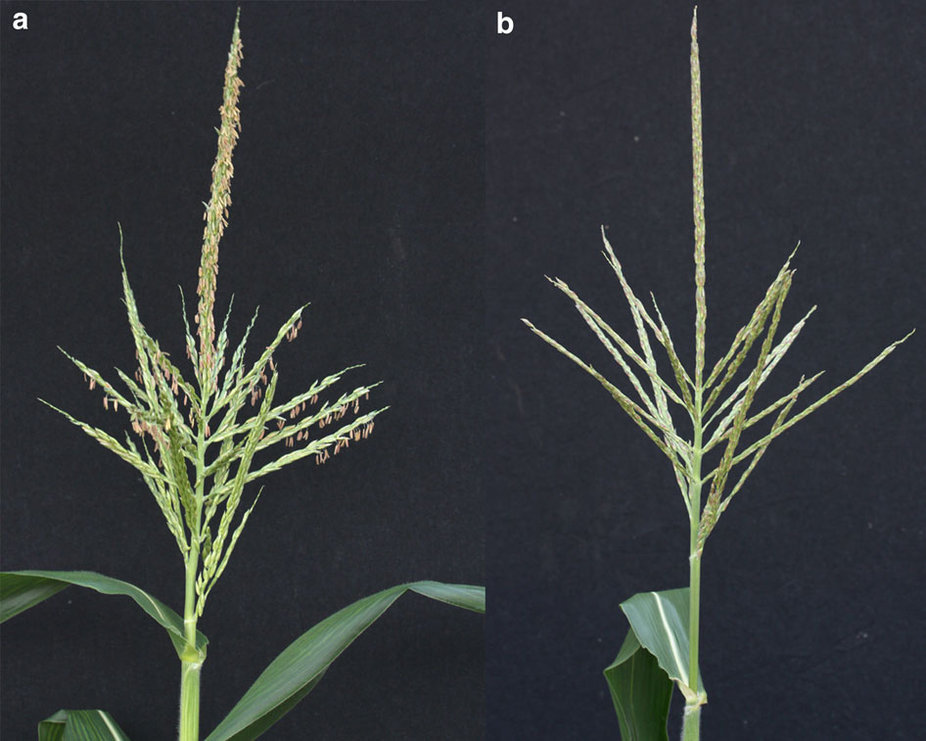
Genome editing in maize directed by CRISPR–Cas9 ribonucleoprotein complexes
Plant Science Research Weekly, ResearchSvitashev et al. demonstrate a new way to introduce CRISPR-Cas9 reagents into a plant cell, through the biolistic delivery of pre-assembled Cas9-gRNA ribonucleoproteins. This approach was successful in the production of engineered plants, and also demonstrated that this method can be done in a DNA- and…
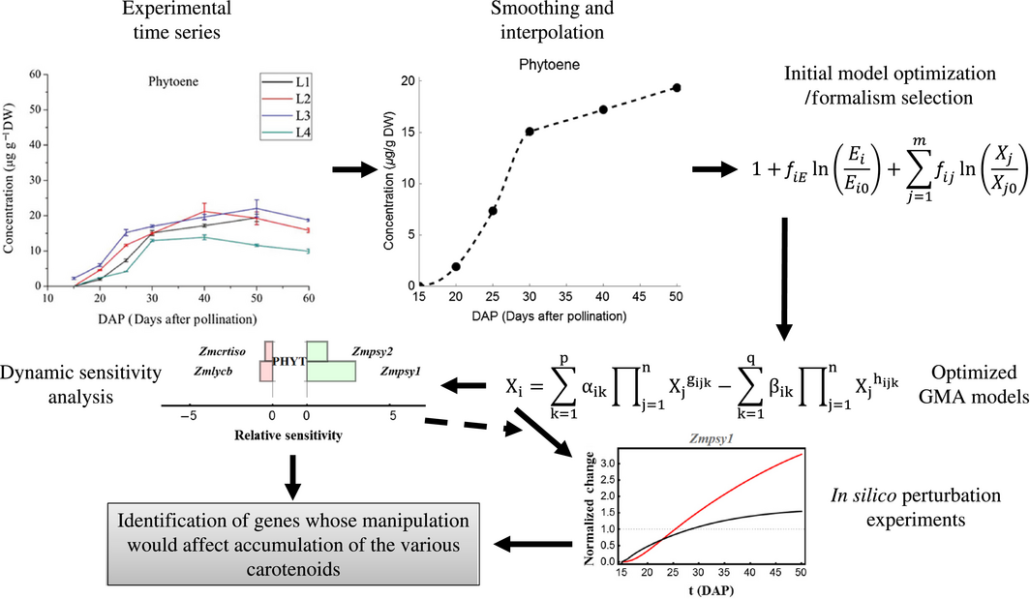
Improving carotenoid production in synthetic maize through data-driven mathematical modeling ($)
Plant Science Research Weekly, ResearchCarotenoids are nutritionally important phytonutrients. Comas et al. describe a strategy to enhance the production of cartotenoids in the seed endosperm. They start with quantitative metabolomics and gene expression data which they feed into mathematical models to determine which gene(s) need to be engineered.…

